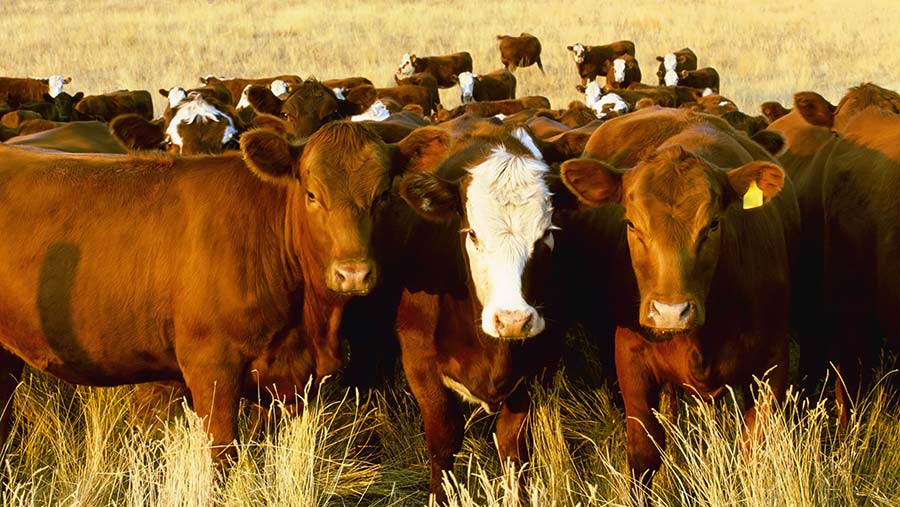EU-Canada trade deal ‘could harm British beef sector’
 © Design Pics Inc/REX/Shutterstock
© Design Pics Inc/REX/Shutterstock The NFU has raised concerns about a trade deal with Canada that has been hailed by EU officials as a victory for farmers and growers.
Brussels has claimed the Comprehensive Economic and Trade Agreement (Ceta), which came into force on 21 September, would save EU exporters €590m (£520m) a year in reduced tariffs on goods.
The EU said it was a victory that would create opportunities for European farmers, while protecting the EU’s sensitive sectors.
Central to Brussels’ positivity is the removal of duties on 98% of products that the EU trades with Canada.
“The smallest companies will benefit most from the reduction in red tape,” according to an EU Commission statement.
See also: UK must change mindset to succeed with post-EU trade deals
Small businesses will save time and money by avoiding any additional product testing, lengthy customs procedures and costly legal fees, the statement said.
The deal will also give better access to companies from outside Canada to bid on all of the country’s public procurement contracts, from large-scale federal agreements to smaller tie-ups with local organisations.
The EU has further opened its market for certain competing Canadian products in a limited and calibrated way, while securing improved access to the Canadian market for important European export products, Brussels added.
The products include cheese, wine, spirits, fruit, vegetables and processed food products. Ceta will also protect 143 EU “geographical indications” in Canada.
But as well as some positives, the NFU has expressed concerns about Ceta. The union fears Ceta may act as a blueprint for a Brexit deal and pave the way for significant imports of Canadian beef and other produce in the long term.
NFU EU exit and international trade adviser Lucia Zitti explained that the deal with Canada is based on tariff rate quotas (TRQs).
These are quotas that allow the import of a limited quantity of produce at a specially reduced duty rate.
Some of the TRQs improved the position of UK producers, but others may undermine important markets, she said.
“Ceta could prove to be good for the British dairy industry, with access to the Canadian market for cheese,” said Ms Zitti.
The Canadian market is governed by a supply management scheme which restricts production.
“The market for British cheese could, therefore, be substantial,” said Ms Zitti.
However, reduced controls for beef were a concern for the UK.
“The beef market is in very delicate balance. Any increase in imports and further deals under Brexit, if it follows this pattern, could undermine that position,” Ms Zitti said.
The TRQ for beef includes strict rules on certifying that the meat is hormone-free. Likewise an increase in pork imports from Canada will be under an agreement that no growth promoters have been used in its production.
For wheat a TRQ that will allow in 100,000t for seven years and full access after that period was less of a concern than it may appear, Ms Zitti said.
“It sounds substantial, but the agreement will bring in mostly durum wheat that does not compete directly with British stocks,” she explained.
Comprehensive Economic Trade Agreement in a nutshell
Dairy
A new TRQ where the EU can export to Canada up to 17,700t of cheese:
- 16,000t of which is for high quality cheeses
- 1,700t for industrial cheese.
Some 800t of high-quality cheese will be added through a technical adjustment to the EU portion of an existing World Trade Organization TRQ.
Total TRQ for cheese that can be exported to Canada will be 18,500t.
Beef, veal and bison
A TRQ of 50,000t for hormone-free beef imports:
- 35,000t fresh
- 15,000t frozen.
Total TRQ for beef that Canada can export to the EU is 50,000t.
Pork
A new TRQ for Canada to export pork to the EU of up to 75,000t:
- plus 5,549t under an existing WTO TRQ.
Total TRQ for pork that Canada can export to the EU is 80,549t.
Common wheat
A TRQ for Canada to export 100,000t of wheat for the first 7 years of the agreement.
The in-quota rate will be zero.
This quota will expire once the tariff on common wheat is fully phased out under Ceta.
Total TRQ initially 100,000t for seven years – unlimited thereafter.
